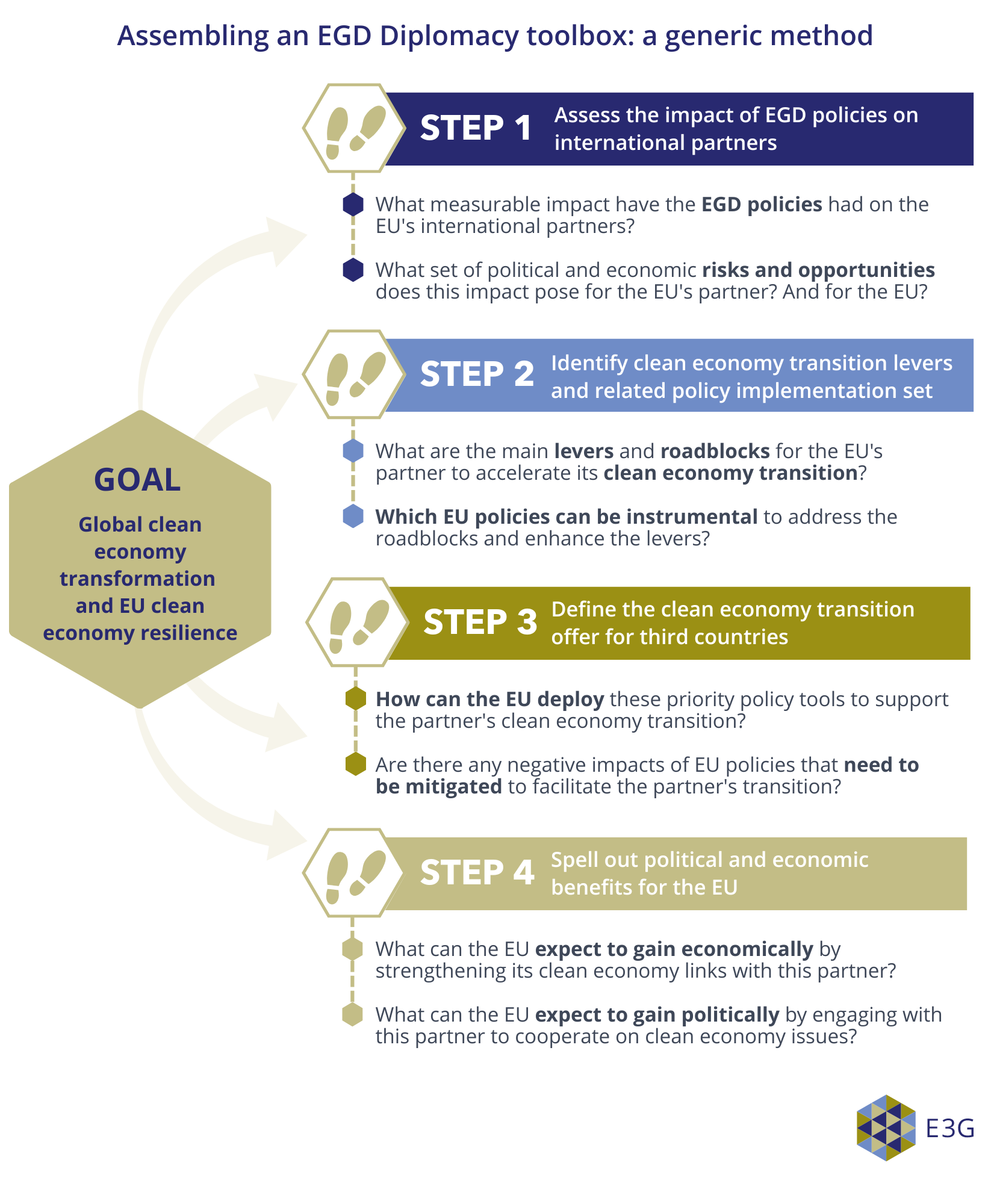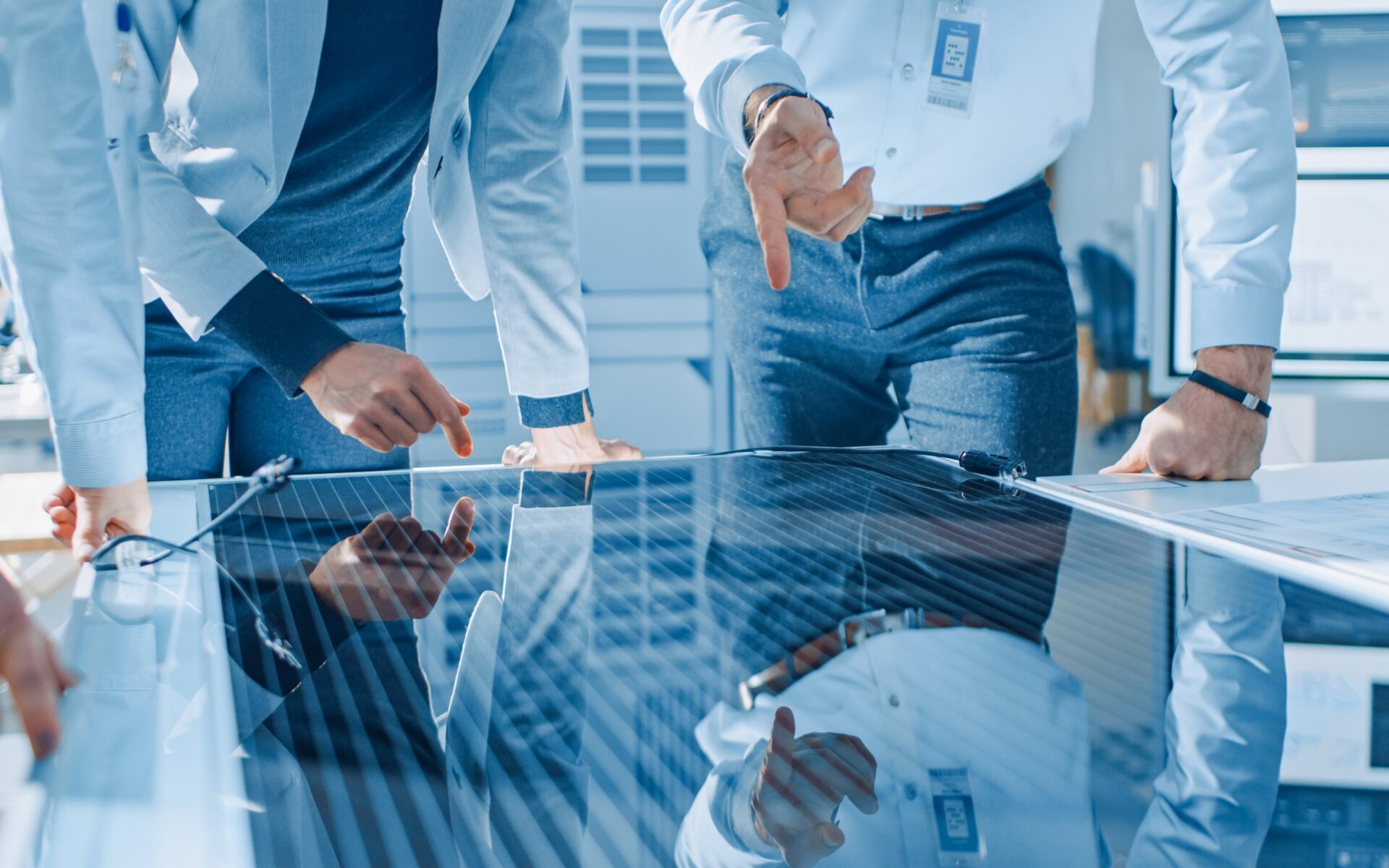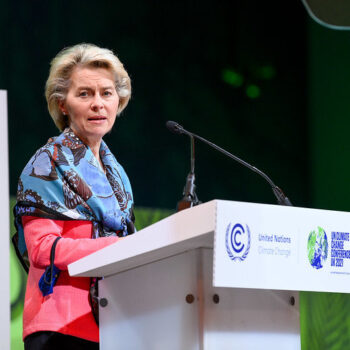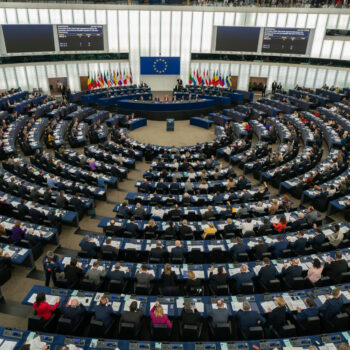Shaping the global transition to a clean economy is vital for the EU to ensure its long-term prosperity and security. However, the international dimension of the European Green Deal – central to the EU’s domestic agenda – is poorly defined. The EU can better mobilise the tools within the European Green Deal to drive and secure its place in the global transition, as well as decarbonisation at home. This European Green Deal Diplomacy toolbox will strengthen the EU’s response to increased competition from other transition models.
The European Green Deal placed the EU at the forefront of the global clean economy. Against all odds, the EU has sustained its commitment to the clean economy transition throughout a series of unprecedented crises. However, its first-mover advantage is quickly eroding due to domestic and international challenges, such as the US Inflation Reduction Act.
Europe needs to both future-proof its economy and build more resilient partnerships. EU leaders have tended to address both issues separately. To succeed, the EU needs a strategic approach that combines both aims.
To build a comprehensive and ambitious Green Deal Diplomacy, the EU should take inspiration from its domestic climate agenda and strategically deploy its regulatory and political clout. This is no small task in times of great geopolitical tensions and uncertainties. However, the EU must be able to simultaneously manage domestic crises while working for its long-term economic resilience and political relevance.
Building the right institutional structures to ensure delivery is key to the success of this agenda. The agenda should aim to be transformative for partners and strengthen partnerships, while also supporting the resilience of the EU’s clean economy.
Method for building a diplomatic toolbox based on the European Green Deal
This briefing expands on our previous work on European Green Deal Diplomacy, where we made the case for the EU to leverage its own clean economy transformation to accelerate the global transition.
Now, with the EU’s economic model of decarbonisation under increasing competition, we develop a method for building a diplomatic toolbox based on the European Green Deal. We include a suggestion for what such toolbox might look like:

Guiding objectives
The toolbox is based on our three guiding objectives for European Green Deal Diplomacy:
- Increasing trade in clean goods and services.
- Building more sustainable value chains.
- Supporting the development of clean industries in the EU and abroad.
The diplomacy of EU’s Green Deal Industrial Plan
To strengthen its Green Deal Diplomacy in the context of the Green Deal Industrial Plan, the EU needs to:
- Establish partnerships to enhance global support for the transitions and manage the impact of EU policies. All of Team Europe should adopt a new clean economy cooperation agenda and mainstream it into all engagements with key geographies. To succeed at this, the EU needs a more comprehensive understanding of how its clean economy transition impacts third countries to identify risks and opportunities for climate cooperation.
- Deploy a strategic toolbox to drive third countries’ transitions. The EU lacks a strategic approach to leveraging its clean economy transformation to accelerate the global climate transition and build more resilient partnerships. A new strategy should be implemented through a comprehensive diplomatic toolbox, including strategic communications. Inspiration can be taken from the EU Green Deal.
- Reset the EU’s diplomatic institutional structures for Green Deal Diplomacy. Currently, the EU’s institutional set-up for external action is not built to deliver sustained impact. A successful Green Deal Diplomacy requires organising EU diplomacy differently.
Read the full E3G briefing on a European Green Deal Diplomacy toolbox here.



